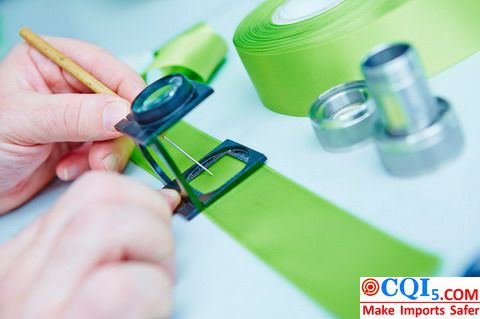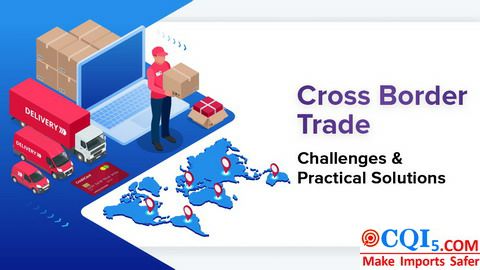In China’s inspection industry, some companies superficially inspect to cut costs, even misleading clients with low prices.
They might pressure inspectors to complete excessive work within a day, compromising the depth and thoroughness of inspections. This practice often results in mere snapshot operations rather than comprehensive product testing. Such behavior can lead to quality issues for importers and retailers, triggering high return rates and ultimately damaging their profits and reputations.

Regrettably, some importers turn a blind eye to this, misled by such superficial inspection services.
They mistakenly believe that a photo taken by an inspection company equates to quality control. However, genuine professional inspection services entail much more than just taking pictures.
For example, for mandatory tests, if a factory lacks the necessary conditions, many inspection companies might simply inform the client that onsite testing is not possible. In contrast, professional inspection companies like CQI will verify viable alternative solutions with the factory before inspection to ensure that crucial inspection tasks can be carried out. This is what truly professional inspection service looks like, not a superficial approach.
Unfortunately, in China, many traditional inspection companies with over a century of history are stuck in this “superficial” service mode, unable to make necessary changes due to their adherence to old methods. On the other hand, emerging Chinese inspection companies, such as CQI Inspection, see opportunity. They are actively utilizing information technology to reform the traditional inspection industry and gain an edge in intense market competition.
CQI Inspection recognizes that possessing a comprehensive knowledge information management system for business operations is a core advantage. This system should encompass all relevant information modules, including onsite inspectors, office staff, suppliers, factories, standards, and technical knowledge management. Only then can inspectors carry out professional inspections during a day’s work.

Therefore, CQI Inspection firmly believes that such a progressively improved professional knowledge management system is a key measure of whether a Chinese inspection company can provide professional rather than superficial services. This is the foundation for their necessary reform and innovation to provide truly professional and effective inspection services.
In conclusion, we must start questioning Chinese inspection companies that only provide superficial inspection services to protect the interests of importers and retailers and ensure the quality of products sold on the market. To achieve this goal, we need to better understand and apply professional knowledge and information management systems to enhance the professionalism and effectiveness of inspection services. While not all Chinese inspection companies can provide high-quality services, we believe that emerging companies like CQI Inspection, through reform and innovation of their business models, will be able to gain a competitive edge and provide truly professional and effective inspection services.
References
Zhang, L., & Yu, J. (2018). The role of third-party inspection in China’s food safety regulation. Food Control, 85, 472-480.
Huo, B., Zhang, C., & Zhao, X. (2014). The impact of human resource factors on quality inspection in supply chain management. International Journal of Production Research, 52(21), 6457-6472.
Wang, Y., Wang, Y., & Jiang, L. (2016). Outsourcing or self-management: A dynamic strategy for the inspection services in a supply chain. Omega, 62, 56-68.
4. Liu, H., Ke, W., Wei, K. K., & Hua, Z. (2013). The impact of IT capabilities on firm performance: The mediating roles of absorptive capacity and supply chain agility. Decision Support Systems, 54(3), 1452-1462.
Ye, F., Zhao, X., Prahinski, C., & Li, Y. (2013). The impact of institutional pressures, top managers’ posture and reverse logistics on performance—Evidence from China. International Journal of Production Economics, 143(1), 132-143.
Zhou, H., Benton, W. C., Schilling, D. A., & Milligan, G. W. (2011). Supply chain integration and the SCOR model. Journal of Business Logistics, 32(4), 332-344.
Hsu, C. C., Tan, K. C., Kannan, V. R., & Keong Leong, G. (2009). Supply chain management practices as a mediator of the relationship between operations capability and firm performance. International Journal of Production Research, 47(3), 835-855.
Lai, K. H., Wong, C. W., & Cheng, T. C. E. (2006). Institutional isomorphism and the adoption of information technology for supply chain management. Computers in Industry, 57(1), 93-98.
Frohlich, M. T., & Westbrook, R. (2001). Arcs of integration: an international study of supply chain strategies. Journal of Operations Management, 19(2), 185-200.
Chen, I. J., & Paulraj, A. (2004). Towards a theory of supply chain management: the constructs and measurements. Journal of Operations Management, 22(2), 119-150.
Tan, K. C. (2001). A framework of supply chain management literature. European Journal of Purchasing & Supply Management, 7(1), 39-48.
In summary, choosing a Chinese inspection company that can provide professional and comprehensive services is crucial.
Such companies ensure in-depth, accurate product inspections, not just superficial checks. They utilize a robust knowledge management system to optimize processes, increase efficiency, and provide the best service to their clients. Although most companies are still stuck in “superficial” inspections, emerging companies like CQI are modernizing the industry through information technology, making it more competitive. Therefore, as an importer or retailer, you must remain vigilant, ensuring that the inspection company you choose can genuinely provide the professional services you require.






